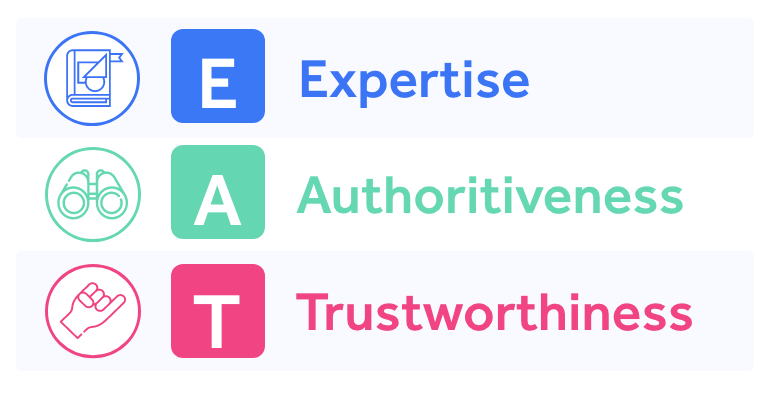SEO specialists and managers have the job of helping businesses rise through the organic search rankings, increasing traffic and conversions.
It’s an important job.
But it’s a job that’s greatly misunderstood, which means that there can be a few teething problems when adding one to your team.
To help build a successful relationship, we’ve compiled this useful list of how not to work with your SEO.
Ready? Let’s jump in.
1. Don’t Ask for More Than You Pay For
If your list of job requests for an SEO looks like this:
“Do an SEO audit. Implement technical SEO strategies. Then, when that’s done, write 30 pieces of high-quality content for a brand new blog that you are going to design and run yourself.”
You’re asking far too much of your SEO.
It’s a fundamental lack of understanding about what an SEO actually does and what it is humanly possible to deliver.
This list of demands is like calling a plumber up to help you install a new sink, then sneakily asking if they wouldn’t mind also building a few cabinets, tiling your walls, and painting a mural on the wall.
Know what your SEO’s job role and specialty is.
If you ask too much of them, they won’t do it.
The same way that your plumber just isn’t going to finish your entire kitchen off for you.
No matter how much you pay them.
 I have to do WHAT now?
I have to do WHAT now?2. Don’t Set Unrealistic Goals
“Let’s get to the top of the SERPs, ASAP!”
Don’t expect immediate results from your SEO.
As much as you might want to ranking first ASAP, it’s just not going to happen.
It can take at least 4-6 months before you see any real results from SEO work.
And even then, it might not be as good as you expect.
If you need fast results, you should look to PPC managers.
Now, don’t get me wrong on this one.
This isn’t a get out of jail free card for SEOs to sit back and do no work under the guide that “SEO just takes time!”
It’s about being realistic.
You’re never going to instantly top the SERPs for a particular keyword.
But if they’re doing their jobs right, you should be climbing through the rankings nevertheless.
3. Don’t Ask Them to Use Black Hat Tactics
Black hat SEO is using risky tactics to raise a website’s rankings.
They go against search engine guidelines and include tactics like keyword stuffing, bulk buying links, link farming, or sneaky redirects.
It’s also called “spamdexing”, which is defined as a deliberate manipulation of search engine indexes. Personally, I’m rather fond of that word.
Black hat tactics may work in the short term.
But they will damage your website’s reputation and make future SEO work much harder.
Especially if you get a manual action from Google.
4. Don’t Focus on the Number of Backlinks
Backlinks are great for building your website authority and one of the most important ranking factors.
Link quantity doesn’t matter.
Link quality is what matters.
A good SEO isn’t going to buy links from low-ranking sites – or beg “easy” placements on websites where you can feel the manual penalty slinking its way through the screen.
When it comes to link building, you need to trust your SEO to get you quality links.
(Note: some SEOs don’t offer link building. Again, check their actual job role before you assign tasks).
This seems like a good place to remind you of our first point: link building will be a part of their job, but PR isn’t.
If PR isn’t part of their job, then don’t ask them to write your press releases for you.
5. Don’t Ask Them If They’re Hungry When They Want to E-A-T
There’s one thing that search engines value above all else: quality.
Now, quality is a bit of a pesky word to define, particularly from Google’s crawlers. Which is why Google came up with the concept of E-A-T.
This is what it stands for:

- Expertise. This is all about showing that you have the credentials, experience, and knowledge in your industry to be talking about your subject. Basically, it’s proving that you know what you’re talking about.
- Authoritativeness. This is similar to the first point, but more about how others perceive your business and how well recognized your brand name is.
- Trustworthiness. Search engines do not take lightly to you lying to your users. All the information you present needs to be factual, honest and trustworthy.
If your SEO is talking about E-A-T, don’t ask if they’re hungry. I’m sure they’re fine and don’t need a second helping of a terrible joke.
6. Don’t Expect a Straightforward Answer
SEO is a notoriously complicated beast.
Why?
Because search engines like Google play their cards exceptionally close to their chest, not revealing much information about their algorithm to prevent people from cheating the system.
To top it off, they also push around 500-600 updates live each year.
Imagine keeping on top of all that.
Most of these will be small changes, but every now and again you get a core update that can rock the very foundations a company is built on.
If you ask your SEO a question, be prepared for them to give you the annoyingly, politician-esque answer of “it depends.”
In fairness, sometimes it does depend.
Sometimes they have no idea.
And sometimes, they might also need time to tweet Webmaster Trends Analyst John Mueller and ask him for advice. (Please help me @JohnMu!).
This is so common it’s practically become a meme.
It’s something that Stephen Kenwright has also poked fun at in this tweet:
I made this handy guide for anyone who has to work with SEOs. What else? 🤔 pic.twitter.com/lRACLYhoEb
— Ste at Home (@stekenwright) February 21, 2020
It’s an enjoyable table. Only, I can make this point without using comic sans.
On a Serious Note…
Be kind to your SEOs.
We’ve poked fun at common SEO situations and problems here.
But in our particular climate, it’s important that we also find time to be kind and acknowledge the real-life struggles that people are facing.
Over half (52%) of all the workers in the UK technology industry have suffered from anxiety or depression.
In addition, people working in this industry are “just as stressed as health service workers and are up to five times more depressed than the UK average.”
This isn’t something that’s out in the open.
At Adzooma, we did our own research and found that 67.9% of people have stayed silent on mental health in the workplace. But even more shockingly, 83.3% of people plan to never tell their employer.
It just goes to show that you never really know what’s going on.
So, respect others and trust that they know their discipline.
Be kind and listen to your SEOs.
That’s how you’ll develop a beautiful and prosperous relationship built to last.
More Resources:
- Managing SEO for Non-SEOs: 3 Simple Tips
- Why the Divide Between SEOs & Developers Is a HUGE Problem (& How to Fix It)
- SEO Is Everyone’s Responsibility: 5 Tips to Get Non-SEOs Bought Into SEO
Image Credits
Infographic created by author, February 2020





